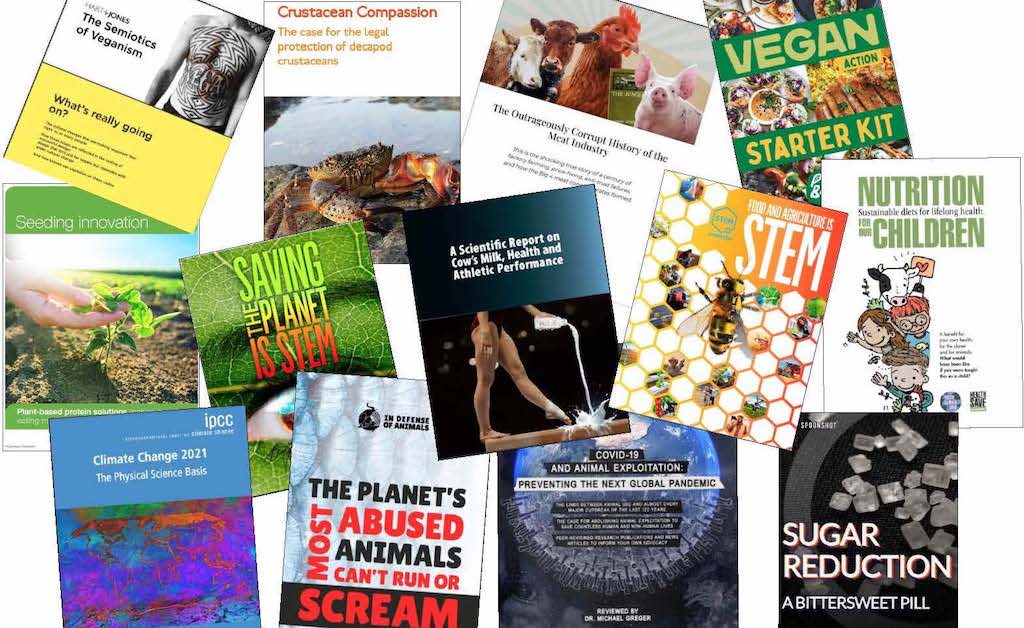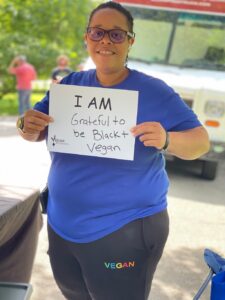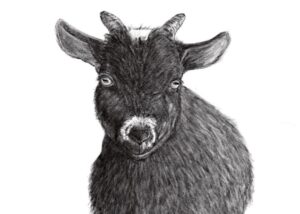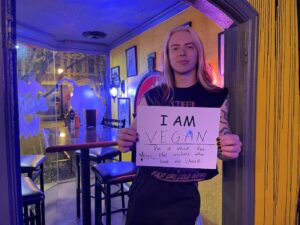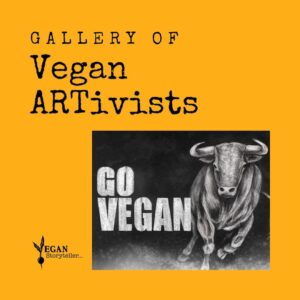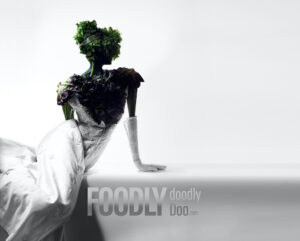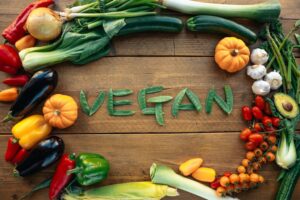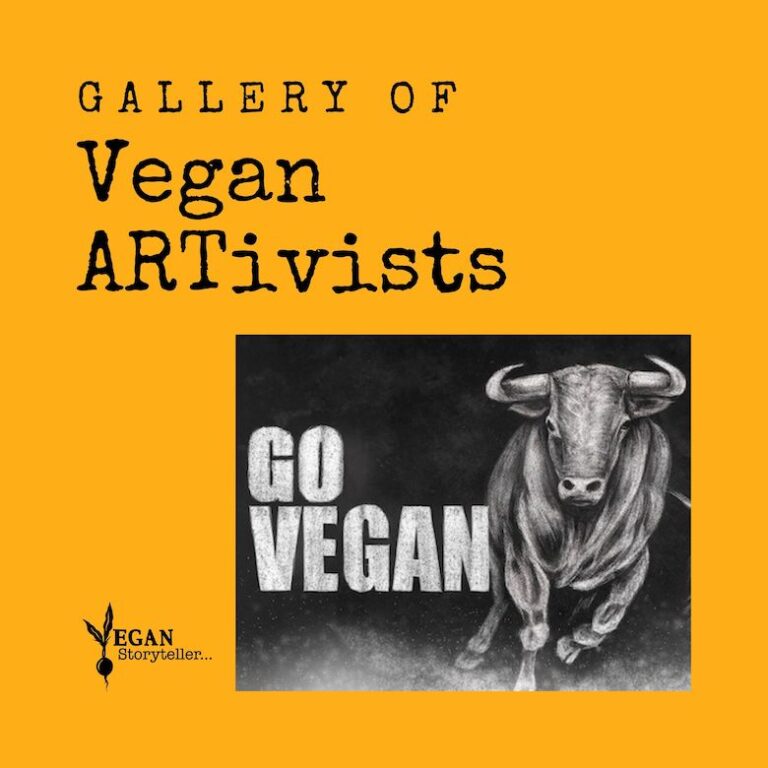White papers and reports help cut through the clutter and noise of a world where everyone has an opinion about veganism, even those people who are not vegan. Scientific and corporate documents are particularly helpful when I’m making decisions about my vegan lifestyle or when I’m looking for information to help me speak with confidence about a vegan issue or take appropriate action as a vegan activist.
In the last few months, I haver read several white papers and reports published by companies that produce meat and have positioned themselves to invade the plant-based market. I am thankful for these documents because they provide me with insight into the marketing and communication strategies of the meat industry.
In this way, I don’t get duped into believing wild claims of sustainability and animal welfare. When comparing claims in their papers with their actual actions, it is clear that the companies don’t live up to their hype.
Slick advertising has given meat companies a foothold in the vegan movement
As veganism is finally being recognized as a valid lifestyle choice, the vegan movement has grown rapidly. Taking notice are the world’s cruelest and most corrupt businesses: the meat industry.
It’s no secret that the meat industry has its hooks in plant-based proteins. The biggest meat conglomerates in the world, as well as McDonalds and Burger King — fast food giants that have destroyed Amazon rainforests illegally and rapidly for decades — now offer veggie options.
As recently as May 7, 2021, Greenpeace called for McDonalds, Burger King, and UK supermarkets to cut ties with JBS, the world’s largest meat-packing company and one of the worst forest destroyers in the Amazon. But the fast food chains and supermarkets are still buying meat from JBS subsidiaries.
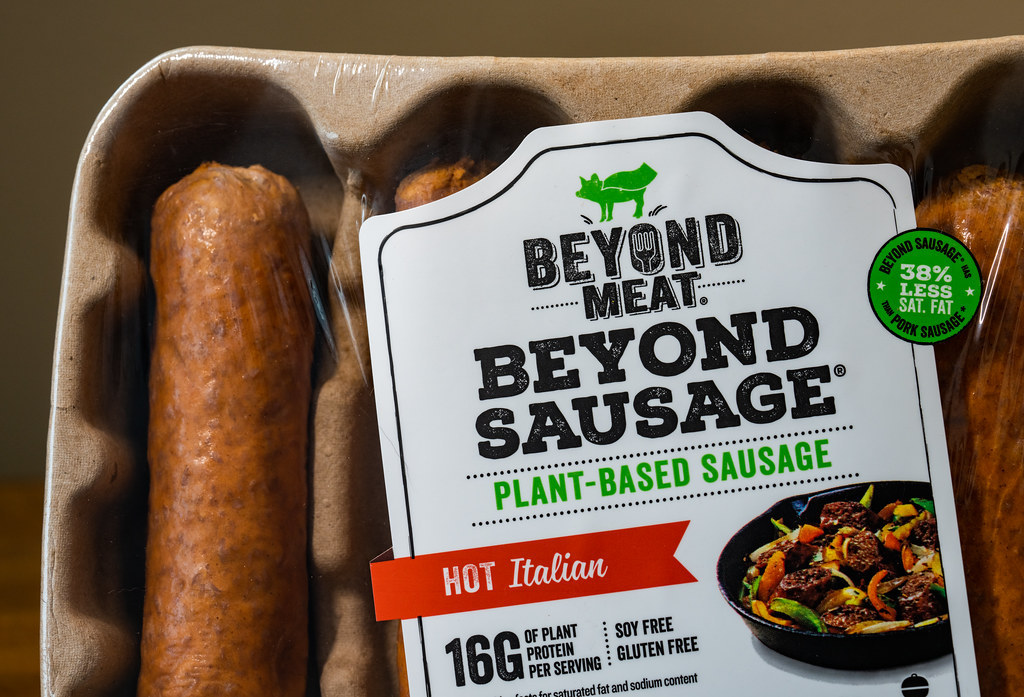
Meat giant Tyson Foods was an early investor in Beyond Meat before selling its shares worth $79 million to shift toward its own plant-based offerings. Photo Tony Webster, Creative Commons
Corporate white papers and reports play into public relations campaigns
Cargill’s white paper Seeding Innovation: Plant-based Proteins, for instance, is part of a public relations campaign intended to position the company as a thought leader and industry expert in plant-based nutrition.
Cargill compiles plant-based protein information from numerous sectors for its white paper, making it appear as though it is an expert in the field. In this intentional report, Cargill appears to have transformed from a laggard to a leader in plant-based nutrition. The hype would lead us to believe that Cargill is a trendsetter in terms of cultural relevance.
In reality Cargill is among the world’s top four violators of animal welfare laws, environmental laws, and human rights laws. Read Cargill’s rap sheet of crimes.
Don't get sucked up into marketing hype
A glossy, professionally produced white paper tells one story about Cargill, but its on-the-ground practices of environmental degradation, animal cruelty, and human rights violations tell a different one. The report, of course, doesn’t address these abuses or how Cargill is feeding the world by destroying the planet.
Cargill and a number of other meat producers, such as Tyson Foods, Smithfield, and JBS have launched plant-based brands to compete in the market. Understanding what this means is crucial to avoid being sucked into marketing hyperbole and committing crimes against animals and the environment by making wrong decisions.
Mercy For Animals maintains a website titled TysonTorturesAnimals.com. Would you really want to buy Tyson’s Raised and Rooted alternative meat products or Cargill’s pea protein powder or its Planterra products, knowing these companies are notorious for animal cruelty?
Don't expect meat companies to report truths about their practices in their white papers and reports
Contrary to what their advertising copy or promotional materials may imply, meat producers do not practice vegan ethics. We’re kidding ourselves if we think they do. In corporate white papers and reports, marketers can say whatever they want to about their brand. A well-crafted, slick brochure can make even the most ruthless business look charismatic.
The truth is, meat producers are motivated by money. They entered the plant-based market to boost revenues. That’s the bottom line. Globally, the meat market is expected to reach over one trillion dollars by 2025, thanks in part to the rapidly growing plant-based craze that the meat companies are co-opting. All of the meat companies want a piece of the veggie action.
Hiding facts is par for the course for meat producing giants
Pork processing giant Smithfield Foods launched its plant-based brand Pure Farmland in September 2019. In an interview about the company’s approach to food production, John Pauley, the chief commercial officer for Smithfield, said, “We’re a meat company, first and foremost. We’re not going to apologize for that.”
Yet, the Pure Farmland brand does not mention Smithfield in its packaging or on its website. What I would say to this is, ”Buyer beware.” Always know where your food comes from before buying it.
Meat production and rainforest destruction are directly linked, but you won't read this in corporate white papers and reports
A Greenpeace investigation revealed a link between rainforest deforestation and food sold in British supermarkets and restaurants.
It was discovered that McDonalds, Burger King, and other fast food chains and supermarkets sold meat that was sourced from a UK supplier that was operating illegally in protected rainforest reserves.
There are clear links between threatened ecosystems in Brazil and the foods the average person eats. A new investigation by The Bureau of Investigative Journalism, Unearthed (an award-winning investigative journalism project from Greenpeace UK), and other reporting partners traces complex supply chains that link UK chicken to soya grown in the Brazilian Cerrado, a massive tropical woodland that’s vital for climate control.
Learn the facts behind corporate claims
The Brazilian Amazon lost 13,235 square kilometers (5,110 square miles) between August 2020 and July 2021, according to the Prodes monitoring system of the National Institute for Space Research. In 2020, Brazil’s rainforest saw the highest level of deforestation since 2006, according to the government’s annual report. Emissions from agriculture increased by 2.5 percent in 2020.
Thankfully, nonprofit organizations are publishing white papers and reports that call out the abuses of the meat industry. Human Rights Watch published a white paper in March 2021, titled Crisis in the Brazilian Amazon. A YouTube video shows the devastating link between fast food chains and deforestation and fires in Brazil.
Look to journalistic white papers and reports for the bigger picture of issues related to veganism
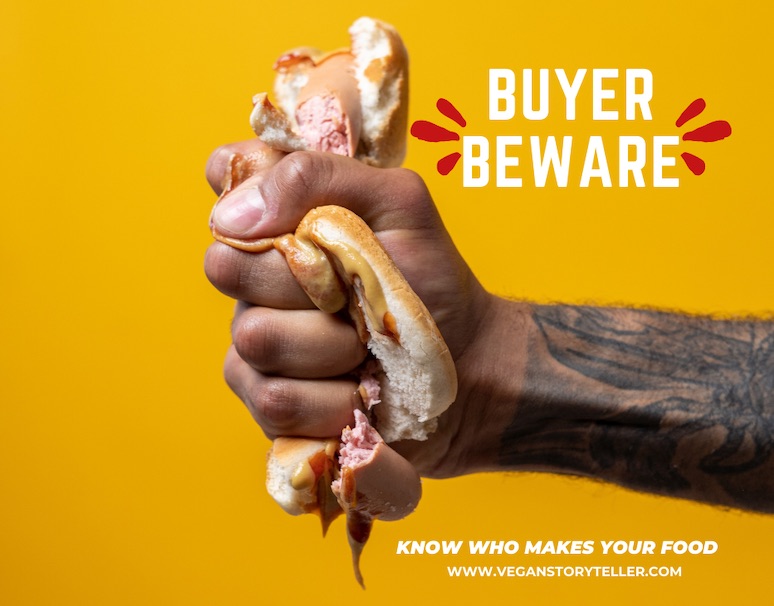
Not everyone understands these concerns, so they buy blindly or believe the company’s marketing claims. I belong to several vegan Facebook groups and read the following reactions on a recent post about McDonald’s new veggie burger, McPlant.
“You could be more open minded, and willing to see the good in this. This can only be a good thing, right?”
“Of course they (McDonalds) will go fully plant based. It’s inevitable. Buying their plant based version just now is just going to speed up the process.”
“There are 36,000 McD’s worldwide,..serving 68 million customers EVERY DAY. So,.. if just one person, in each restaurant,..a day,..tries the McPlant, has a moment of clarity?..Goes Vegan? That’s 252,000,000 more of us in a week. Happy?”
“It all has to begin somewhere. This is literally how it’s beginning. For those that won’t eat it is like saying I shouldn’t buy my Gardein items at the same store that sells murdered animal body parts. Of course I should.”
Stay informed with investigative white papers and reports so you don't turn a blind eye to truth
Some people turn a blind eye when it comes to buying plant-based foods. For them, the end justifies the means. In response, I have the following questions:
- What is the benefit of purchasing plant-based products that are made by companies that torture and slaughter millions of animals every day?
- Is it wise to buy veggie burgers at McDonalds and other fast food burger joints, knowing that our actions will contribute to pushing the world’s last wild frontier ever close to extinction?
- Do animals, the Amazon rainforest and its indigenous peoples have less value than our stomachs?
As an aside, the Gardein brand mentioned on the Facebook post began as a small startup and is now owned by ConAgra. A Canadian chef, Yves Potvin, invented the product Gardein in 2003 and opened his own company to sell his product. Pinnacle Foods bought Gardein in 2014 for $154 million, and then the food giant ConAgra ($11 billion revenues) acquired Pinnacle in 2018.
Well-researched white papers and reports provide detailed analysis of evidence and information
Knowing which companies produce plant-based options is a good first step to discerning whether you want to buy their products. For me, saying no to those companies that are cruel to animals and destroy the environment is the real take home lesson from these white papers and reports.
There is a lot to dislike about the meat industry. Along with animal and environmental abuse, there is the issue of power. I also oppose the recent development of meat producers entering the plant-based market because corporate giants have a lot of money and can easily swallow startups. It has been done before in other markets.
For years, oil companies bought clean-energy startups and essentially shut them down. Similarly, meat giants and industrial food conglomerates can corner the market on plant-based protein products. The corporate acquisition of the startup Gardein is a case in point.
Read unbiased white papers and reports to stay informed of vegan issues
In a world where public relations teams and social media trolls try to derail our mission, we have to stay on course. Vegans need to stay informed. It is one of the goals of Vegan Storyteller to provide quality information that cuts through the noise to reveal important truths. In this way, you are informed and prepared when making personal lifestyle choices, entering into conversations and tackling activist actions.
Vegan Storyteller offers a variety of useful resources, including well-researched blogs and scientific white papers and reports to help you make good personal choices, speak with confidence, and take action.
Are you trying to learn how to go vegan and need advice on where to start and how to prepare vegan meals? Try a vegan starter kit. Each vegan starter kit offers something different, so find one that best suits your needs. All of them are easy-to-follow guides. If you choose one that doesn’t motivate or inspire you, then find another one. All it takes to begin forming your new vegan habit is the simple step of completing a vegan starter kit.

Read next Transitioning away from meat and dairy is a process. Thankfully, vegan starter kits can simplify the process and help you learn how to go vegan with ease.
